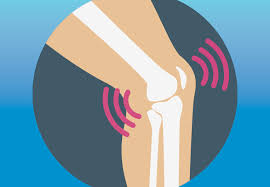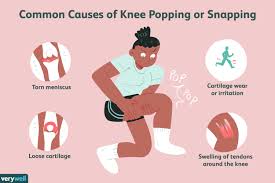Over time or after an injury you may notice that your knee begins to click when you move. Sometimes this condition is accompanied by pain. More often than not there are no other symptoms besides the noise. Clicky knees is usually caused by some portion of the knee not sitting in the proper position. Different parts of the leg are being used and stressed more than normal. There are many conditions that can cause the knee to start clicking, most of which are harmless and easily treatable.
Patella-Femoral Joint Pain
PFJP is a condition that is caused when the knee cap is out of line and not tracking properly along the femur. This is often caused by an injury or stress on the tibia, or the lower bone in your leg which protects your kneecap. If any of these bones come out of line, the knee may click when it is bent. Your ITB which stabilizes the kneecap or your quad muscles are usually overworked or too tight. This can cause your kneecap to be pulled out of alignment causing pain and clicking. This is readily and easily treatable by one of our physio’s. (There is a blog post dedicated to it!) Physio treatment will involve releasing the ITB, taping and of course exercises to strengthen the muscles around the knee to prevent it from reoccurring.
Osteo-arthritis
Also known as “wear and tear” arthritis. Osteoarthritis commonly affects the joints you use most often and those that bear weight, such as the knees. In osteoarthritis, mechanical stress and biochemical changes combine to break down the cartilage that cushions the joint over time. This causes inflammation and pain, and the joint may crackle and crunch. Again, physio and clinical exercise is very helpful to strengthen the muscles around the knees to offload the bones. Massage can help to alleviate swelling and pain. Physio treatment may help with these clicky knees but sometimes further medical intervention may be required (see blog).
Meniscal Tear
Clicking in the knee with associated pain and locking of the knee could mean a cartilage tear. The meniscus in the knee is usually damaged by a twist occurring on a slightly flexed knee. A partial or total tear of a meniscus may occur when a person quickly twists or rotates the upper leg while the foot stays planted. Repeated or prolonged squatting can also tear the meniscus. Often, meniscal tears occur with age, rather than with an incident. Clicky knees with associated pain and locking may need medical intervention, Be sure to come and see one of our physio’s who can assess where to refer you.
There are other causes of knee clicking: air bubbles in the joint, post surgical or trauma and more complex knee pathology. It isn’t something you need to live with, especially if it’s painful.
Tanya


